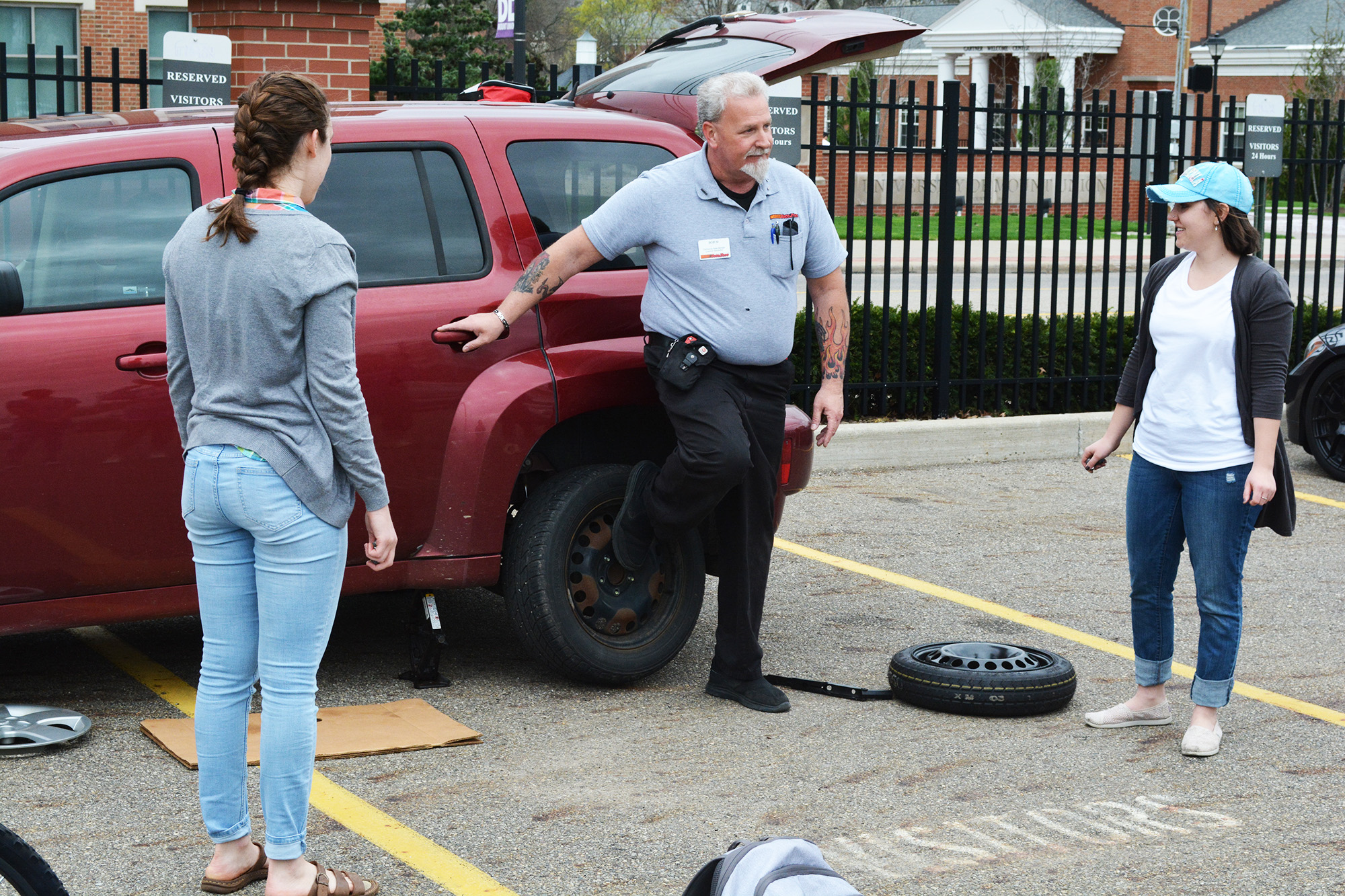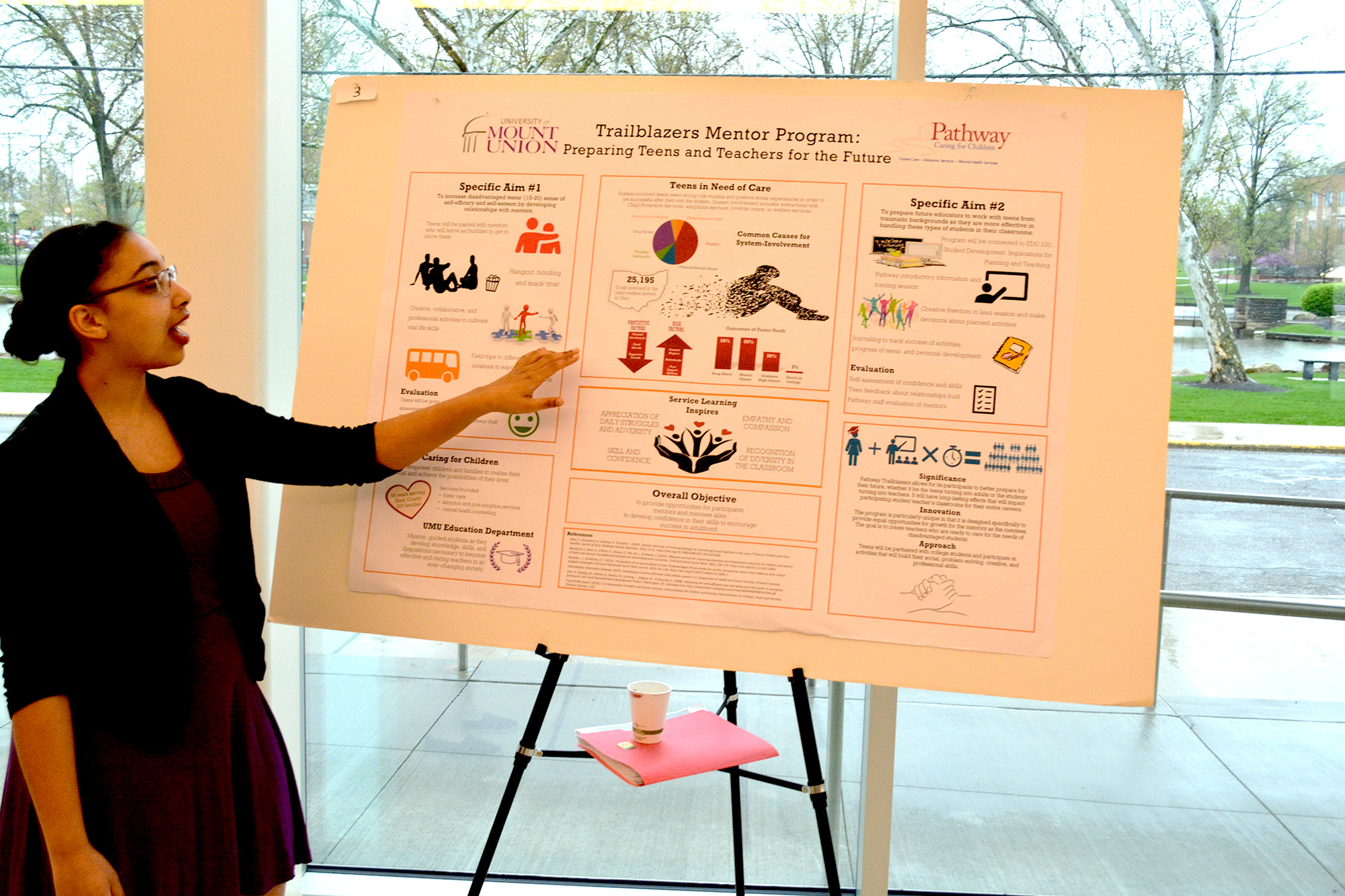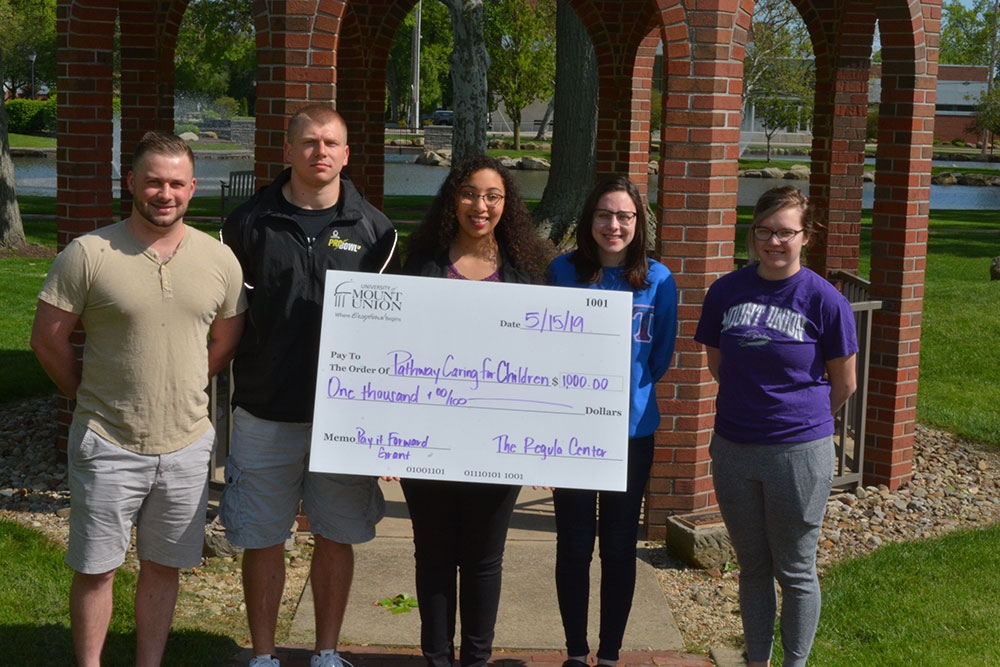Capstone Courses Teaching Skills Beyond the Classroom
May 16, 2019By Jack Ineson ‘19
ALLIANCE — The capstone course is a required experience for students in their final year at the University of Mount Union. It encapsulates what it means to be a liberally educated individual, rounding out Mount’s Integrative Core program.
The senior capstones build upon the three pillars of Mount Union’s mission statement: “Fulfilling lives, meaningful work, and responsible citizenship.” They are designed to get students out of their comfort zone by challenging them with knowledge and experiences that are outside of their major.
By offering these unique in-class experiences, Mount Union’s capstones give students one last opportunity to broaden their knowledge base during undergrad. The benefits of offering students a broad education is that they will be more adaptable and able to think critically outside of their discipline-specific knowledge. They also serve as an opportunity for students to discover a specific industry or passion for which they can build a career around.
There are a variety of capstones taught by faculty from several different disciplines. There are nearly 20 different capstones from which students can choose. The curricula of these courses can range from practicing mindfulness, which involves coping with stress and living an active life, to gaining important post graduate skills such as renting a home or dealing with debt.

An AutoZone employee teaching students in Dr. Theresa Davis' capstone course how to change a tire if they are unaware of useful techniques.

Kerstin Vaughn '19 presents her grant proposal as part of Dr. Keith Miller's capstone course.

Members of the Pathway Caring for Children grant proposal group stands with the $1,000 check that will be donated to Pathway.
Several students had the opportunity to showcase their capstone projects in the Giese Center for the Performing Arts on Friday, April 26. The students were from Dr. Keith Miller’s honors capstone class titled, “Responsible Citizenship” pulled from Mount Union’s mission statement.
For the project, each student individually partnered with a local non-profit group. They then designed a unique grant proposal to raise money for their specific non-profit. Community judges from the local Kiwanis chapter, the Chamber of Commerce, Rotary Club, the mayor’s office, and the Stark County Foundation were present to evaluate each of the proposals and award the winner a $1,000 grant for their non-profit, sponsored by the Regula Center for Public Service and Civic Engagement’s Trash to Treasure Sale. This year, Pathway Caring for Children was awarded the grant.
Topics for these projects covered research on a variety of students’ passions, from after school mentorship programs aimed at interrupting childhood poverty cycles, to information on how to reduce the use of single-use plastics in order to protect local aquatic environments. Though many of these students have majors that aren't related to business, they were challenged to think as an active entrepreneur rather than a researcher.
While Miller’s capstone projects challenged students to think with an entrepreneurial mindset, Dr. Theresa Davis’ capstone offered the opportunity to gain a leg up in the post-graduate landscape. Her course accomplishes this by offering students practical life skills, including a lesson on how to select between different insurance plans and a demonstration on basic auto care by a local professional. Many of the skills students can learn in this capstone are skills that are no longer commonly taught and provide students with peace of mind and the ability to gain personal and financial independence through self-improvement. Davis also focuses on creating the family histories of each student, as many know little about their families beyond immediate family members.
Dr. Ivory Lyons’ capstone course consists of students becoming more familiar with diversity as they graduate and leave campus. Its final project finds students presenting this knowledge to an outside audience. The students typically speak with members of area churches in the spring or local school districts in the fall about what they wished they had learned about diversity prior to coming to college.
The final component of the capstone experience leaves students with an online portfolio of their written and verbal work from their junior and senior years. This portfolio provides students with an opportunity to show how much they have progressed as a writer and communicator in the two years following their written and oral communication (WOC) portfolios.